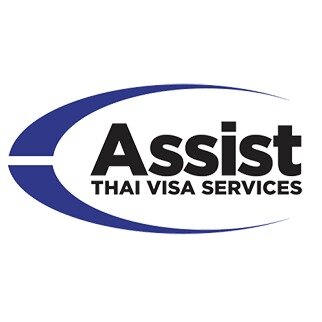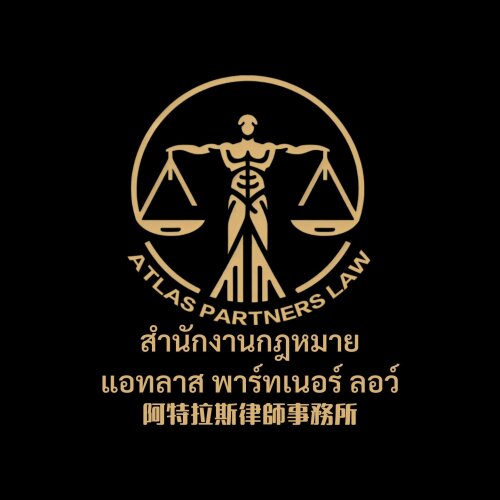Best Dependent Visa Lawyers in Chiang Mai
Share your needs with us, get contacted by law firms.
Free. Takes 2 min.
List of the best lawyers in Chiang Mai, Thailand
Legal guides written by SIAM LEGAL INTERNATIONAL:
- Defamation Laws in Thailand: Criminal Charges and Civil Suits
- The State of Thailand’s Long-Term Resident (LTR) Visa Program in 2025
- The Penalties Of Not Filing Your Income Tax Return As A Foreigner In Thailand
Thailand Dependent Visa Legal Articles
Browse our 3 legal articles about Dependent Visa in Thailand written by expert lawyers.
- What Are the Requirements for a Marriage Visa in Thailand (2024)?
- A marriage visa in Thailand, also known as a Non-Immigrant O Visa (based on marriage) or Thai Spouse Visa, permits a foreigner who is lawfully married to a Thai resident to reside in Thailand. As of 2024, the application process for a marriage visa can prove to be rigorous, needing... Read more →
- How Can I Renew My Visa in Thailand? A Comprehensive Guide for 2024.
- If you live in Thailand and want to renew your visa, you should understand the procedure, the many kinds of visas available, and the documentation you'll need. Visa renewals are required to remain lawfully in the nation, whether you are on a tourist visa, a work visa, a retirement visa,... Read more →
- Different Types of Long-Term Visas in Thailand
- Looking to make the Land of Smiles your long-term home? Thailand offers a variety of long-term visa options catered to your needs, whether you're settling down with a Thai spouse, retiring by the beach, investing in local business, or enjoying the perks of the Thailand Privilege program. Here's a brief... Read more →
About Dependent Visa Law in Chiang Mai, Thailand
A Dependent Visa in Chiang Mai, Thailand, allows family members of individuals who hold valid long-term visas, such as work or retirement visas, to reside legally in Thailand. This visa is often sought by spouses and children of foreigners working or retired in Thailand. The visa facilitates the reunification of families and is subject to specific regulations and application procedures governed by Thai immigration laws. Understanding these laws is crucial for a successful application and a smooth transition to living in Thailand.
Why You May Need a Lawyer
Seeking legal advice for a Dependent Visa can be beneficial for several reasons:
- Understanding legal requirements and eligibility criteria for the visa is complex and often requires expert interpretation.
- Assistance may be required in preparing and submitting accurate and complete documentation to avoid delays or rejections.
- If facing language barriers, having a lawyer ensures you understand the application process and communication with local authorities.
- In case of unexpected legal issues, such as visa expiration or rejection, a lawyer can provide guidance and support in remedying the situation.
Local Laws Overview
In Chiang Mai, as elsewhere in Thailand, specific laws govern the issuance of Dependent Visas. Key aspects include:
- Eligibility: Spouses and children of foreign nationals holding work or retirement visas are typically eligible.
- Financial Requirements: Sponsors must demonstrate financial capability, often through bank statements or income verification.
- Documentation: Applicants need marriage certificates for spouses and birth certificates for children, along with translated and notarized documents.
- Duration and Renewals: Dependent Visas typically match the sponsor's visa duration and require annual renewals.
- Procedural Requirements: Applicants must adhere to the procedural timelines and guidelines set by the immigration office in Chiang Mai.
Frequently Asked Questions
What documents do I need for a Dependent Visa application?
Essential documents include a valid passport, marriage or birth certificates, financial statements, and proof of relationship with the sponsor. All non-Thai documents should be translated and notarized.
Can my dependent work in Thailand on a Dependent Visa?
No, Dependent Visas do not permit holders to work in Thailand. To work legally, a separate work permit and visa are required.
How long does the Dependent Visa process take?
Processing times vary, but it typically takes several weeks to a couple of months from submission to receive a decision.
Does my dependent need to do a visa run?
Dependent Visa holders may need to report their status to local immigration every 90 days, but actual "visa runs" outside the country are usually not required if status is maintained.
What if the main visa holder loses their status?
If the sponsor loses their visa status, dependent visa holders must also adjust their status accordingly or risk overstaying penalties.
Is it possible to convert a Tourist Visa to a Dependent Visa?
Yes, but it involves a process where you must demonstrate eligibility and comply with all requirements for the Dependent Visa.
What are the fees involved in applying for a Dependent Visa?
Fees can vary, including visa application fees and potential legal or translation fees. It's advisable to budget for unexpected costs.
Can I appeal a rejection of a Dependent Visa application?
Yes, there is an appeals process, but it is recommended to seek legal advice to enhance your chances of a successful appeal.
How often do I need to renew the Dependent Visa?
Renewals are generally required annually, coinciding with the renewal of the primary visa holder’s status.
Do dependents need to show separate financial resources?
No, financial requirements are typically the responsibility of the primary visa holder, proving they can support their dependents.
Additional Resources
For further assistance, one may consider the following resources:
- Chiang Mai Immigration Office: The local authority for visa applications and information.
- Thai Ministry of Foreign Affairs: Offers comprehensive details on visa regulations.
- Legal firms specializing in immigration law: Provide professional legal services tailored to individual needs.
- Expat community forums: Often offer shared experiences and practical advice from others who have undergone the process.
Next Steps
If legal assistance is required for a Dependent Visa in Chiang Mai, Thailand, consider the following steps:
- Contact a local immigration lawyer or law firm experienced in dependent visas.
- Prepare necessary documents, ensuring all translations and notarizations are completed.
- Schedule a consultation with legal advisors to discuss your specific situation and receive tailored advice.
- Follow the guidance from legal professionals for submitting applications and navigating any complex legal issues.
- Stay informed on changes in local immigration laws, as they can impact visa requirements and processes.
Lawzana helps you find the best lawyers and law firms in Chiang Mai through a curated and pre-screened list of qualified legal professionals. Our platform offers rankings and detailed profiles of attorneys and law firms, allowing you to compare based on practice areas, including Dependent Visa, experience, and client feedback.
Each profile includes a description of the firm's areas of practice, client reviews, team members and partners, year of establishment, spoken languages, office locations, contact information, social media presence, and any published articles or resources. Most firms on our platform speak English and are experienced in both local and international legal matters.
Get a quote from top-rated law firms in Chiang Mai, Thailand — quickly, securely, and without unnecessary hassle.
Disclaimer:
The information provided on this page is for general informational purposes only and does not constitute legal advice. While we strive to ensure the accuracy and relevance of the content, legal information may change over time, and interpretations of the law can vary. You should always consult with a qualified legal professional for advice specific to your situation.
We disclaim all liability for actions taken or not taken based on the content of this page. If you believe any information is incorrect or outdated, please contact us, and we will review and update it where appropriate.














